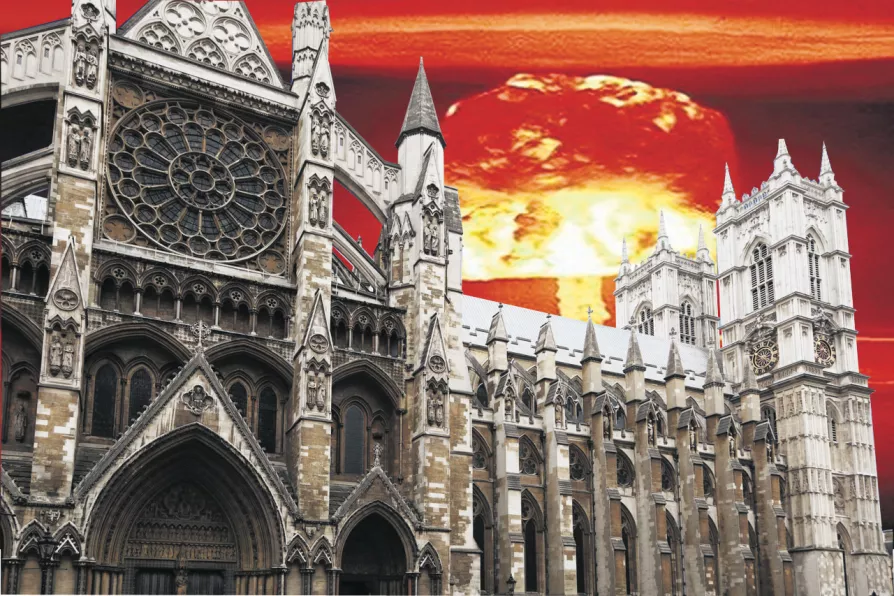The PM says Mandelson 'betrayed our values' – but ministers and advisers flock to line their pockets with corporate cash, says SOLOMON HUGHES

 Westminster Abbey in the shadow of a mushroom cloud
Westminster Abbey in the shadow of a mushroom cloud
PEOPLE will gather tomorrow in a religious building to thank God for weapons.
The building in question is not a fundamentalist mosque. It is not a way-out church in the US calling on its members to bomb abortion clinics.
It is Westminster Abbey, a prominent Christian church in the centre of London and one of Britain’s most prominent tourist attractions.
The abbey is holding a service to “recognise 50 years of continuous at-sea deterrent.”

SYMON HILL looks at Tommy Robinson’s bid to use Christmas to spread division and hate — and reminds us that’s the opposite of Jesus’s message

GUILLERMO THOMAS is persuaded by a scathing critique of the Church of England and its embeddedness in imperialism

RMT’s former president ALEX GORDON explains why his union supports defence diversification and a just transition for workers in regions dependent on military contracts, and calls on readers to join CND’s demo against nuclear-armed submarines on June 7











